
In the world of digital marketing, you need to chart your course. That’s where a comprehensive, effective, and efficient project plan comes in.
Remember the story of KFC’s “FCK” bucket campaign in the UK back in 2018? When KFC ran out of chicken and turned this blunder into a marketing triumph? That wasn’t a happy accident. It was a carefully orchestrated masterpiece.
What’s at stake? According to Harvard Business Review, a whopping 60% of organizations admit to not effectively linking strategy with execution.
Luckily for you, our Senior Project Manager, Chloe Oman is here to bring you the ultimate best practices and key components to make sure you’re executing every strategy to the best of your ability.
Key Components of an Effective Project Plan
When you embark on crafting a project plan, you’re essentially laying down the railroad tracks for your digital marketing train to follow.
Here’s how to ensure your tracks are well-built, and your train doesn’t derail:
1. Clearly Defining Your Goals and Objectives: Before you set anything in motion, identify what you’re trying to achieve. Your goals should be SMART: Specific, Measurable, Achievable, Relevant, and Time-bound. In the realm of digital marketing, this could mean driving traffic, increasing conversion rates, or building brand awareness.
2. Detailed Project Scope and Requirements: Understanding the breadth and depth of your project is crucial. Specify your target audience, the channels you’ll use, and the types of content you’ll produce. For instance, if you’re targeting busy professionals, podcasts or LinkedIn posts may be more suitable than long-form articles.
3. Resource Allocation and Budgeting: Outline your available resources, including personnel, tools, and budget. One important aspect of Resource Allocation and Budgeting in project management is ensuring independent contractors, subcontractors, and self-employed individuals can create pay stubs for proof of income. This not only facilitates better financial organization but also streamlines income verification processes, critical for personal finance planning.
4. Pay Attention to Timelines and Deadlines: Construct a timeline that charts the course of your project from inception to completion. Digital marketing is an ever-changing landscape, and agility is key. However, balance speed with quality by setting milestones and deadlines to keep projects on track and stakeholders informed.
5. Risk Management and Contingency Planning: According to a report from Deloitte, 85% of agile and resilient organizations weathered the storm during periods of economic instability. This involves having a contingency plan and adapting when the unexpected occurs. Identify potential risks, such as algorithm changes or shifts in consumer behavior, and formulate strategies to mitigate them.
Best Practices for Crafting a Comprehensive & Efficient Project Plan
To build a project plan that’s both comprehensive and efficient, think of it like orchestrating a symphony. You need the right instruments, the perfect composition, and of course, the ability to adapt as the performance unfolds.
Here are the best practices to ensure your project plan hits all the right notes:
Involve All Stakeholders in the Planning Process: Getting inputs from all stakeholders—from the creative whiz to the analytical guru—ensures that your plan accounts for diverse perspectives and expertise. Active stakeholder engagement significantly enhances project success rates. It’s the old adage in action: two (or more) heads are better than one.
Conduct a Thorough Needs Analysis: One key component of a robust project plan is to align your strategy with real-world needs. Exploring the uses of a social services case management system can provide valuable insights, especially in human services sectors, to improve outcomes and achieve tangible results. Incorporating this understanding helps you design solutions that are not only technically sound but also meaningful and impactful.
Break Down Your Project into Manageable Tasks: Complex projects need to be broken down into bite-sized tasks. This approach, known as the Work Breakdown Structure (WBS), is a project management planning mainstay. In the context of a digital marketing campaign, this could mean segmenting your project into phases such as research, content creation, and distribution.
Regularly Review and Update Project Plans: Your project plan isn’t a relic to be set in stone. It’s a living, breathing entity that needs to adapt to the ebbs and flows of the market. Regularly revisiting and refining the plan can lead to course corrections that are both timely and informed.
Tools and Software for Project Planning in Digital Marketing
Imagine being a chef in a high-tech kitchen. You’ve got all the ingredients, but you need the right utensils and appliances to create a culinary masterpiece. The same goes for digital marketing project planning tools.
The right tools and software can take your project from a raw concept to a finely-executed campaign. Here’s a breakdown of the types of tools you should consider:
Project Management Software
Asana: Known for its user-friendly interface, Asana allows you to organize tasks, set deadlines, and assign responsibilities. It’s like your digital whiteboard, where you can visually plan everything.
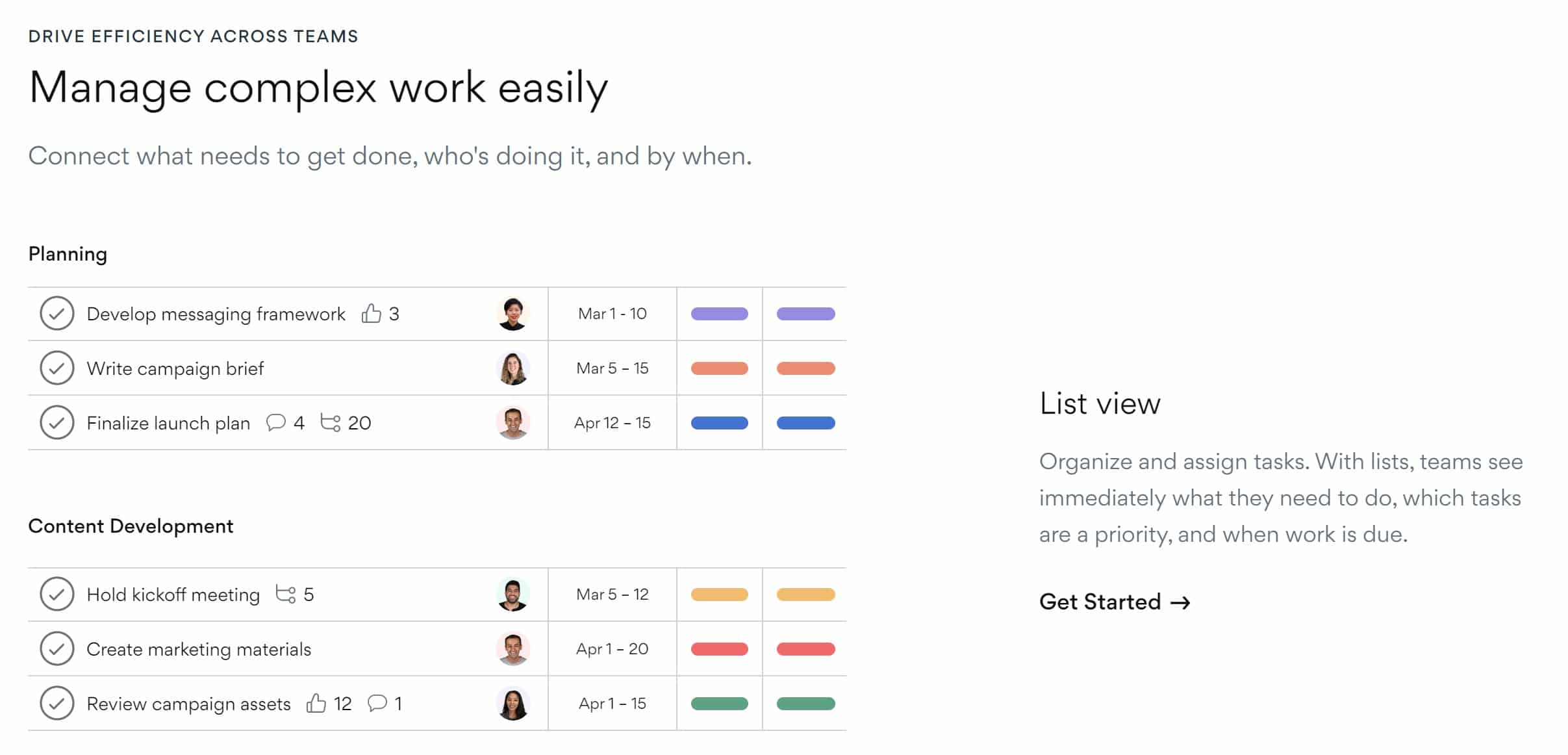
Trello: Trello’s card-based system is excellent for those who love organizing with Post-its but want a digital solution. It’s flexible, intuitive, and, as Atlassian’s user report points out, widely adopted by both enterprises and smaller teams.

Airtable: Picture Excel on steroids. Airtable combines the structure of spreadsheets with the flexibility of a database. It’s especially handy for content calendars, campaign tracking, and data analysis.

Collaboration and Communication Tools
Having these tools in your project planning arsenal is like being that well-equipped chef ready to serve up a flawless meal. Choose the ones that suit your team’s workflow, and you’ll be on your way to orchestrating a successful digital marketing campaign.
Slack: For teams that thrive on communication, Slack is the virtual water cooler. Its ability to integrate with a plethora of other tools and create channels for different topics makes it invaluable for staying connected and in sync.

Google Workspace: When it comes to collaborative editing of documents, spreadsheets, and presentations, Google Workspace is king. Real-time collaboration is a breeze, and it’s almost a given that your stakeholders are already familiar with it.
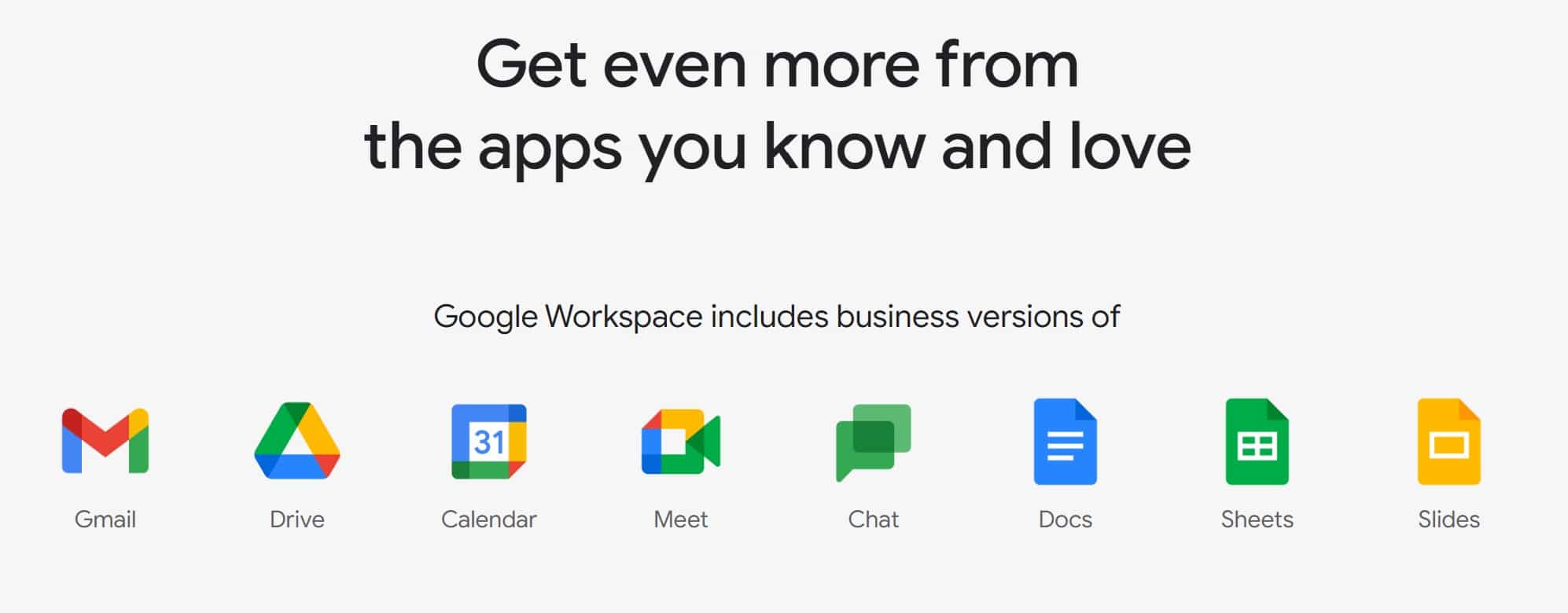
Figma: If your project involves design elements, Figma is a collaborative design tool that allows multiple team members to work on the same design file simultaneously. Think of it as Google Docs but for design.
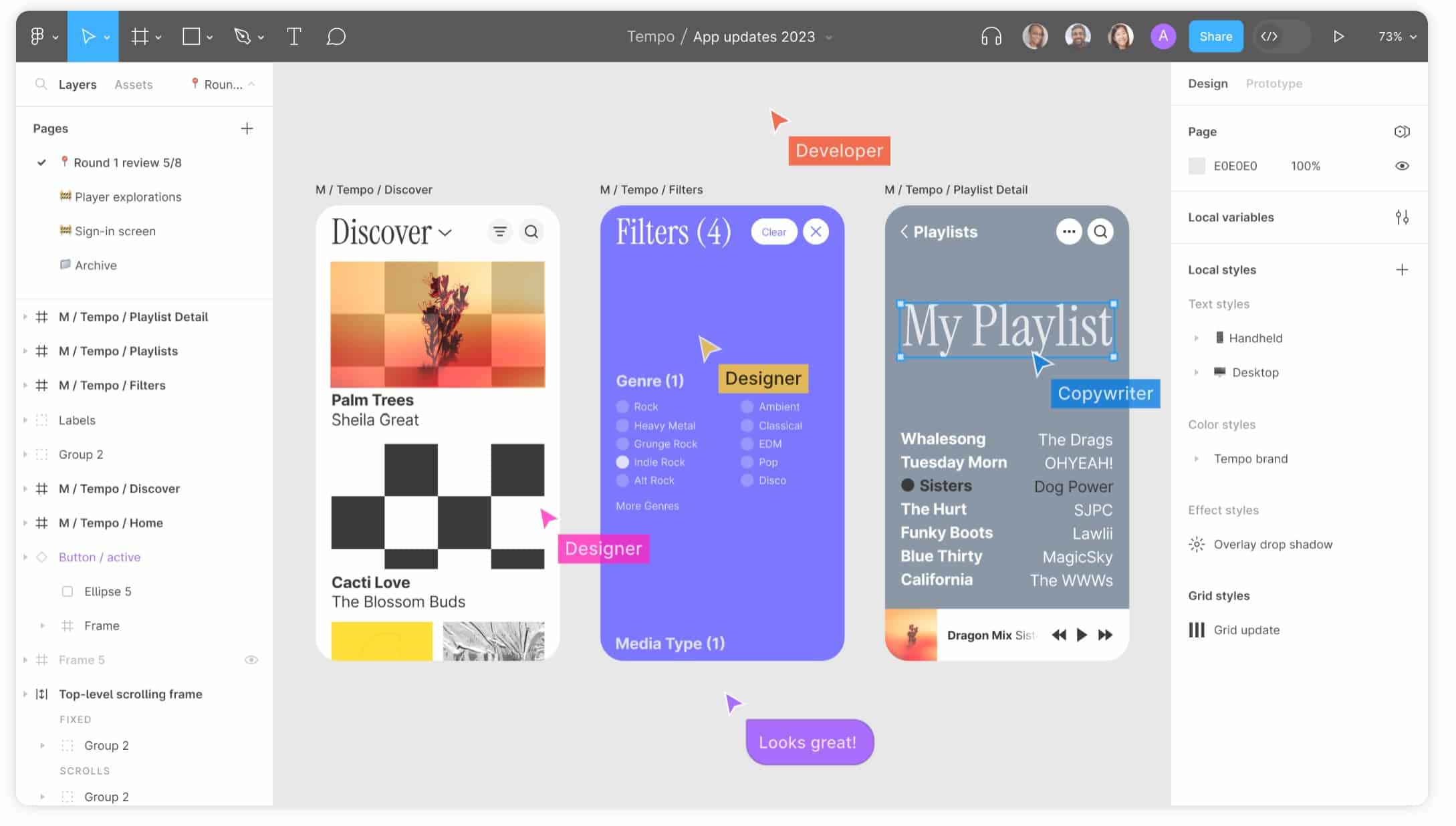
Resource and Budget Tracking Software
Harvest: With time tracking and invoicing features, Harvest is perfect for keeping an eye on the resources spent on different aspects of your project and ensuring you’re on a budget.
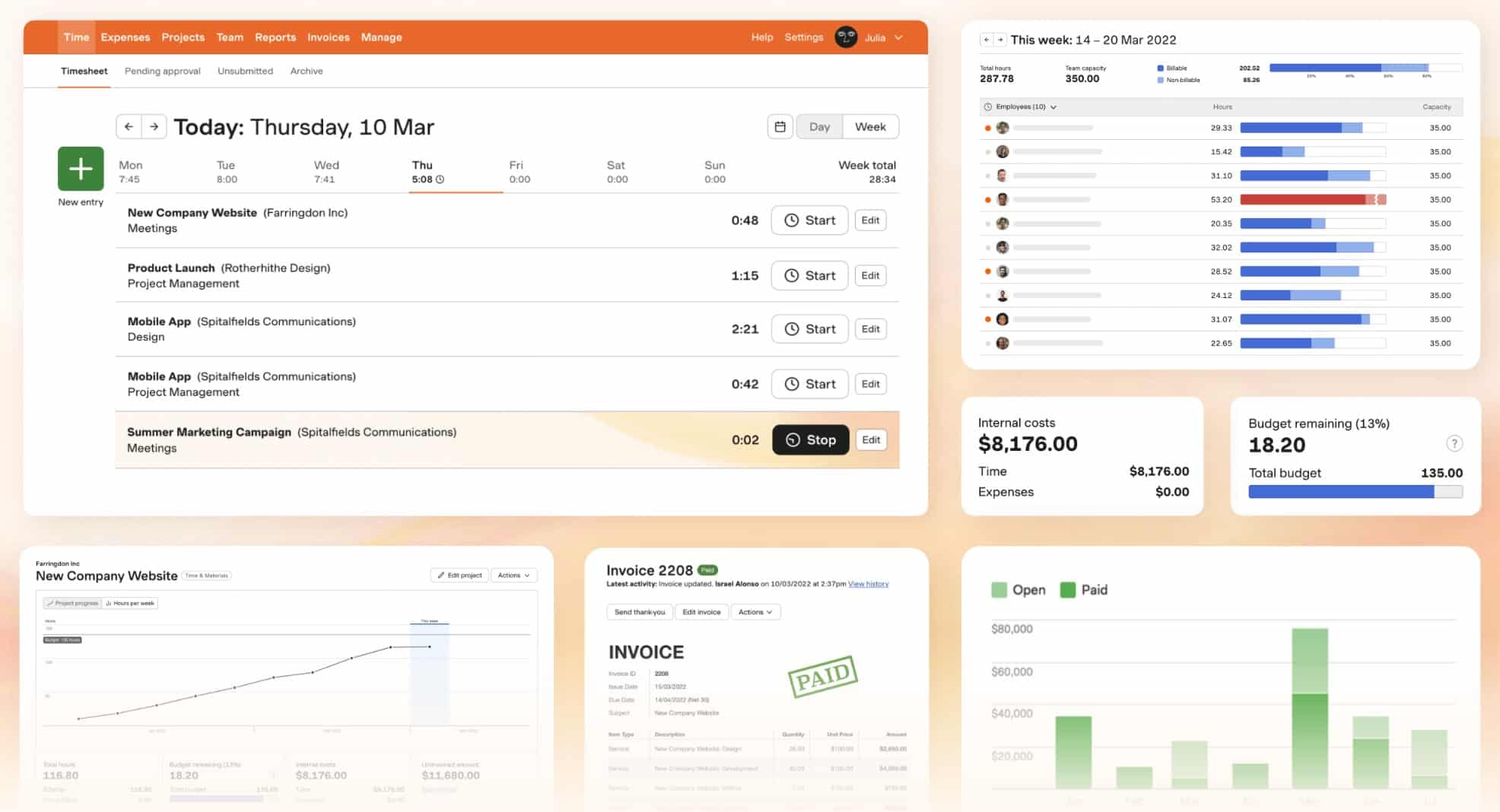
Smartsheet: If resource management and budget tracking need a more project-centric approach, Smartsheet offers a suite of tools to plan, track, and report on project finances and resources in one place.
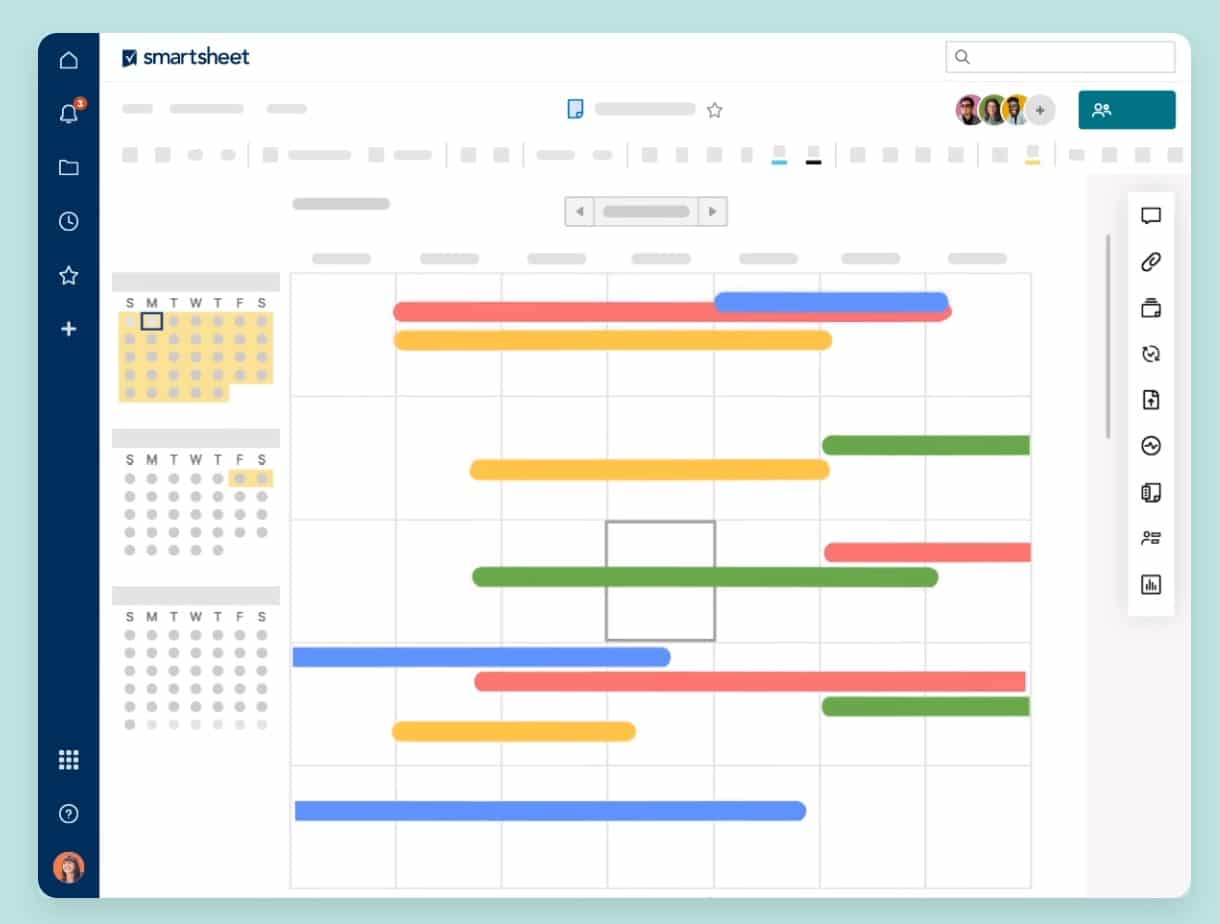
Quickbooks: When you need hardcore accounting with your budgeting, QuickBooks is a reliable solution. It’s particularly useful if your project involves complex financial management.
Enhance your financial management accuracy by utilizing time tracking software that integrates with QuickBooks, enabling seamless data synchronization.
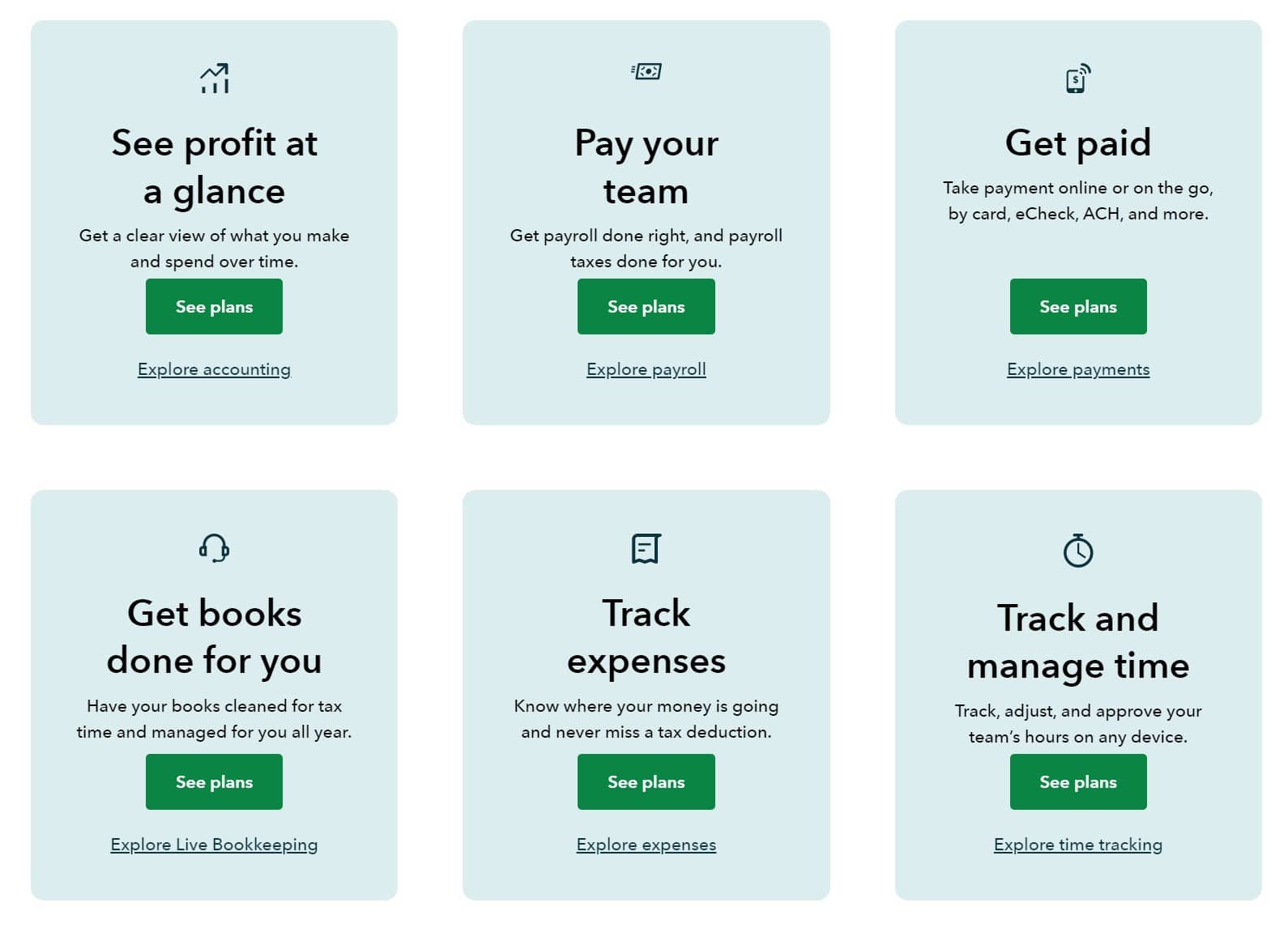
Examples of Digital Marketing Project Plan Formats
When it comes to structuring a digital marketing project plan template, variety is the spice of life. Different projects might call for different approaches.
Below are three common types of project plans that have proven effective in digital marketing.
1. The Gantt Chart
Gantt charts are renowned and reliably efficient. A Gantt chart is essentially a visual timeline showcasing the tasks’ duration and how they overlap.
Example: Imagine launching a new product and needing an integrated marketing campaign. The Gantt chart could display parallel timelines for content creation, social media promotion, and email marketing.
It’s easier to identify key milestones by showing how these activities interlock, like when to release a teaser video or start an email drip campaign.
Tools: Microsoft Project is a classic for creating Gantt charts, though TeamGantt offers more user-friendly, collaborative features specifically tailored for Gantt charts.
2. The Checklist Approach
A checklist breaks down your project into a series of tasks, each with a checkbox ready to be ticked upon completion.
Example: If you’re running an influencer marketing campaign, your checklist might include: identifying potential influencers, reaching out to influencers, confirming collaborations, creating and sharing campaign briefs, monitoring campaign progress, and analyzing campaign results.
As each task is completed, it’s ticked off, clearly indicating progress.
Tools: Todoist is a simple yet powerful tool for creating checklists, while Asana can also be configured to serve as a more elaborate checklist.
3. The Kanban Board
Inspired by Toyota’s manufacturing process in the 1940s, the Kanban Board is a visual management tool that helps you to categorize tasks into columns usually labeled “To Do,” “In Progress,” and “Done.”
Example: If you’re managing a content marketing campaign, the Kanban board can help keep track of various pieces of content as they move through stages like ideation, writing, editing, and publishing. This ensures a continuous flow of content and helps identify bottlenecks.
Tools: Trello is the poster child for Kanban boards, but Jira is also widely used, especially if you’re adopting agile methodologies.
Success in Digital Marketing Through Project Management Planning
- Key Components: Ensure your project plan has clearly defined goals and objectives, and that you understand the scope and requirements. Keep a vigilant eye on your resources and budget, and set realistic timelines and deadlines. And remember, a good captain always has a contingency plan for the unexpected.
- Best Practices: Involve all stakeholders in the planning process and conduct a thorough needs analysis to understand what’s needed for the journey ahead. Break down the mammoth task ahead into manageable tasks and regularly review and update your plan to respond to changes.
- Tools and Software: Equip your ship with the best tools available. From project management software like Asana and Trello to communication tools like Slack and resource tracking software like Harvest, ensuring you have the right tech on board is crucial.
